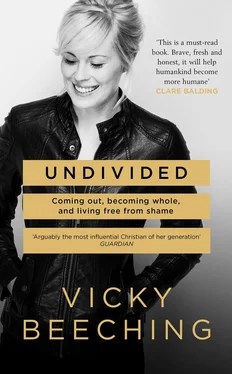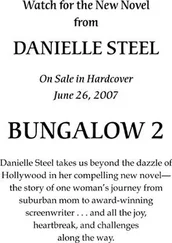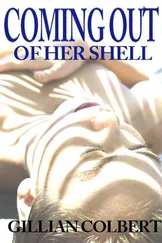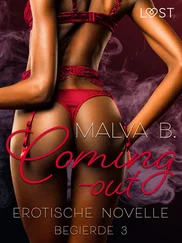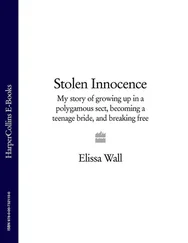I stood up, rubbing my bloodshot eyes and my tear-stained cheeks, and walked to the edge of the platform. This could be it, I thought. I don’t have to do this anymore. I don’t have to live this cycle of heartbreak, shame, fear, and isolation over and over. I don’t have to do this anymore—it could be over so easily.
I moved my feet forward inch by inch on the concrete floor, stepping past the line of yellow paint that marked the safety point. I looked down into the tunnel and saw distant lights. Tears were streaming down my face again. I knew if I moved another inch forward, at just the right second, I could step out onto the tracks as the train thundered into the station. It could all be over.
The lights blinded me as the train approached. My feet moved another inch closer to the edge. But just before I stepped out, I thought: The last hands that touch me and carry my body will belong to total strangers. My whole life I’ve felt alone. If I die here, it’ll be with people who don’t even know my name .
Dying that way, falling onto the hard steel of the train tracks, to be carried away by total strangers, seemed too lonely to go through with. In that split second, I’d found a thought more painful than carrying on with life, and it had distracted me long enough for the train to thunder into the station with my feet still firmly planted on the platform edge.
I staggered backward, returning to the bench where I’d sat before. My heart was racing. I tried to slow my breathing and recover from the shock of what I’d almost done. No one noticed. Hundreds of pairs of feet continued to rush past, on their way to their next appointment. Surrounded by this chaos, I sat, and breathed, and cried as relief washed over me. I don’t know how long I stayed there; it could have been minutes or maybe hours. I just sat and sat, until my breathing relaxed and my heart rate finally slowed.
Eventually, feeling as though I were moving in slow motion, I took a deep breath, grabbed my belongings, and boarded the next train. I had only minutes to pull myself together before I’d arrive at the worship conference and be plunged into a busy week of meetings and rehearsals. There would be no one safe there to confide in—any confession of being gay would be a one-way ticket to the end of a career. I just had to hide my pain and keep going.
Desperate for change, my heart ached. I couldn’t seem to die, but I also couldn’t seem to live.
PART I
Baby photos are supposed to be treasured keepsakes, showing you at your very best: wide-eyed, angelic, and utterly adorable. Unfortunately, in my first baby photo I resemble a small, startled alien. My hair stands straight up in jet-black spikes as though I were auditioning for an infant rock band. I’m told that I’d been fast asleep when the hospital photographer arrived. In a hurry, he’d clapped his hands loudly to wake me up, and the moment I’d stirred, he’d snapped the shot. Thanks to him, the photo of the startled spikey-haired alien has been displayed on my parents’ living-room wall ever since.
My early years were carefree. In my favorite childhood photo, I’m six years old, wearing a bright-red t-shirt and yellow dungarees, and grinning like a Cheshire cat. My hair is cut in a bowl-shaped bob, and my green-gray eyes have a mischievous twinkle. Back then, my favorite hobby was reciting the latest joke I’d memorized from my collection of joke books. Making people laugh was one of my favorite things, and more often than not I had a big smile on my face.
I grew up before the wonders of the internet. My family lived in the countryside, so instead of PlayStations or Xboxes, my days were filled with playing in tree houses, building forts, damming rivers, and running through fields. It gave me a love for wide open skies, the smell of forests after rainfall, and the rustle of wheat as you run your fingers over it like a golden, waist-high carpet. If I’d owned Mario Kart or Zelda back then, I probably never would have left the house.
Perhaps everyone grew up more slowly before cyberspace came along. Today, kids’ minds can be exposed to wonderfully diverse ideas and perspectives at the click of a button. But back then, education and socialization happened organically, not digitally. I learned everything from the small radius of my everyday life, from teachers, schoolmates, family, and the other huge influence in my life: church.
My family lived in a small village of four hundred people. The local school was tiny too, with only forty pupils, aged four to eleven. Always a tomboy, I saved my pocket money until I could afford my first skateboard. My sister, Jo, two and a half years younger than I, also loved skateboarding and riding bikes, so it was brilliant to have a comrade to play with.
Along with my sister, my other childhood partner in crime was the boy who lived across the road. We spent our evenings and the gloriously long summers walking his dog in the nearby woods, practicing skate tricks, and sneaking into the local farmer’s hay barn and climbing all the way to the top of the bales, where we’d lie giggling and coughing in the clouds of straw and dust. Sometimes, if it was raining, I’d hide up in the hayloft on my own with a good book and read, listening to the raindrops drumming on the steel roof.
Two threads wove through my earliest years: one was faith and the other was music. Our local church felt like a second home to me, and I was taken to my first service within days of being born. My grandparents on my mother’s side, who had left their careers in England and moved to Africa as missionaries, were well known throughout our Pentecostal denomination. They came back from Africa once a year to visit us, often around Christmastime. They’d tell us stories of life in Harare, Zimbabwe, showing us photos of the Bible school they ran and of landmarks like Victoria Falls.
While home in England, they’d gather spare clothes and shoes from everyone in our church and ship them back to Zimbabwe to distribute among those in need when they returned. Hearing their stories prompted my earliest dream: to be a missionary in some remote part of the world, preaching, teaching, and pastoring. I remember, around the age of six, when my teacher asked our class, “What do you want to be when you grow up?” Most children replied, “A footballer,” or “A film star,” or “A doctor.” Not me. I answered resolutely, “I want to be a missionary.” My grandparents had become heroes to me, and I wanted to follow in their footsteps and make them proud.
Christian faith felt as natural to me as breathing. It was not a rigid, cold, distant religion, but a genuine heartfelt relationship with God. Prayer never seemed formal either—for me it was just a conversation. At five years old, I walked around the schoolyard chatting with God about my day so far, sharing the highs and lows of my little life. God felt like a friend and a confidant. When I looked out my window at night and saw the moon and stars, my small mind spun with questions about where heaven was located, what angels looked like, and whether I’d ever see my recently deceased (and much-loved) hamster again someday.
Our church, part of the Pentecostal tradition, was always relaxed and upbeat, with music played on guitars, drums, and keyboards and everyone wearing casual clothes. It was a world away from the choirs, pipe organs, incense, and people wearing their Sunday best, found in more formal places of worship.
There were always new faces each Sunday, and everyone was made to feel at home. Refugees from other nations, students who’d moved away from their parents to study at Kent University, homeless men and women, elderly folks in need of a hug and a chat—all received a warm welcome. Our lunches buzzed with the energy of connection as lonely people found community and hungry people received a meal. It was church doing what church is meant to: loving people with grace and kindness.
Читать дальше
